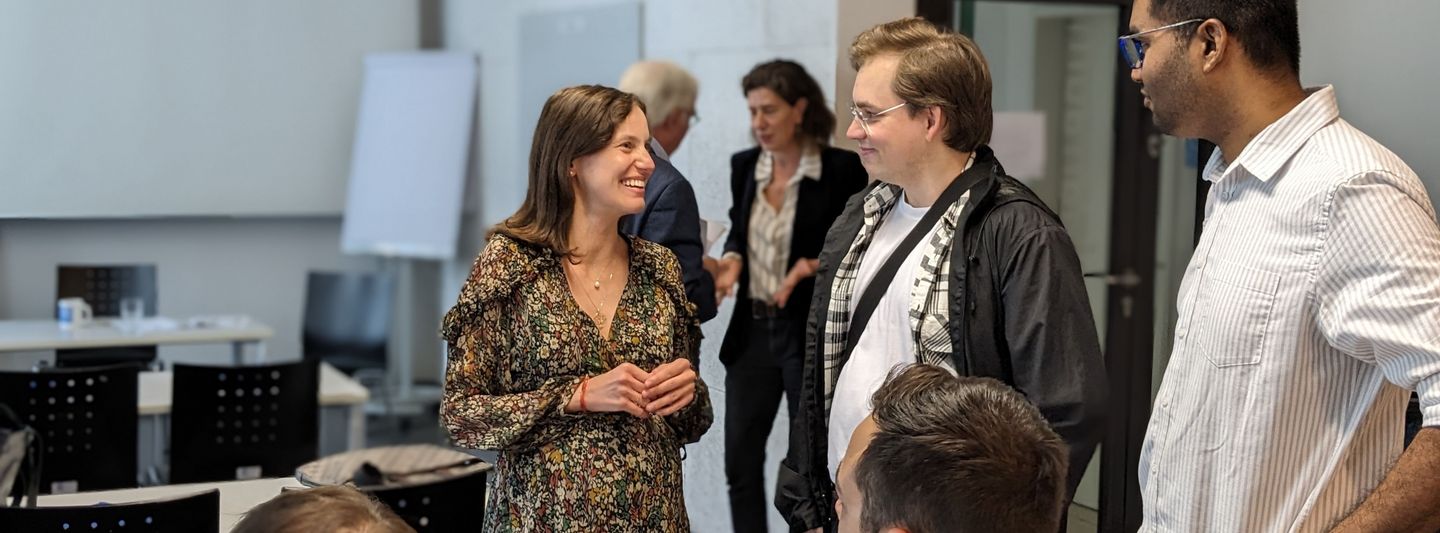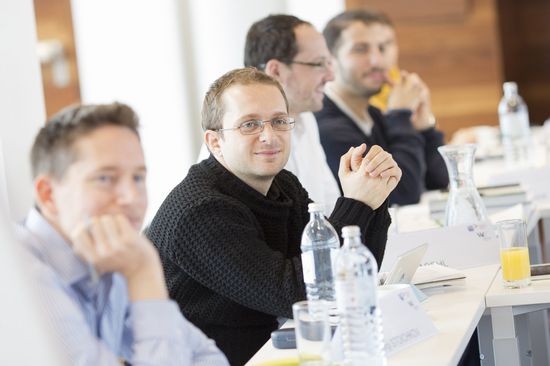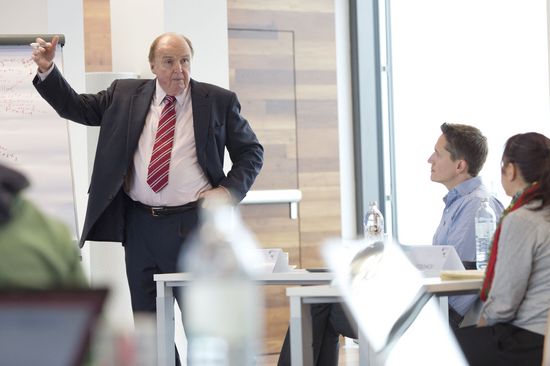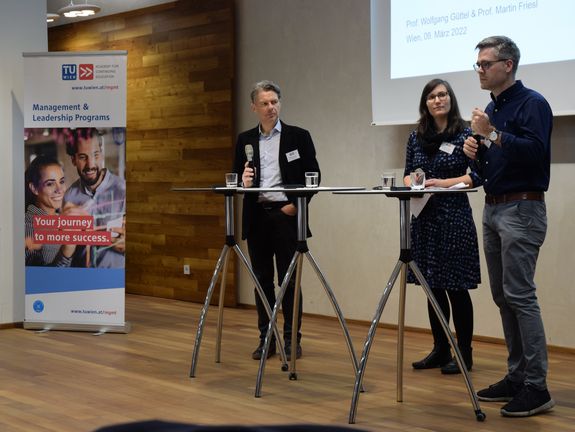In view of the current events in Europe, the TU Vienna Academy for Continuing Education organized an expert talk on March 9, 2022, in which central questions around the topic of “Management & Leadership in Times of Crisis” were discussed.
In the beginning, it was clarified: What is a crisis anyway?
Whether it is a financial crisis, a political conflict, or a global pandemic, crises often manifest themselves in a loss of control - intuitive approaches and experiential knowledge no longer work - and a collapse of order - roles and goals of a company or a team collapse.
How can leaders deal with these uncertainties?
The experience of executives in crisis situations is often one of “condensation”: contradictions that can be easily equalized in everyday life become condensed in extreme conditions. There is often talk of the need for realistic optimism: On the one hand, positive accents should be set to maintain motivation and energy. On the other hand, a pronounced realism is needed to avoid our overconfidence bias and to be prepared for crisis situations.
How can leaders deal with uncertainties in the team?
In times of crisis, managers are confronted with a great deal of complexity from the outside; however, there is also often a lack of support from within, as the uncertainty in the team is just as great. One way to counteract this is preventative and can include: Building trust among each other, providing a psychological safety net, assigning clear roles, and creating crisis plans. This creates a space to look forward together and position the team well for future crises. After all, “You don't learn to sail in a storm.” However, if the organization is already in a crisis situation, then a big key to success is to think through how different people on the team are likely to perceive the crisis and deepen communication spaces.
How can an organization prepare for critical situations such as an economic crisis?
One general recommendation is to think collectively in scenarios. First, assessments of future economic developments are collected from professional fields, the media, and the private environment. In a further step, we can think of trend scenarios on the basis of this information. Finally, these are to be thought through in two ways - a negative and a positive direction. As a side effect of such a discussion, a common basic understanding is generated, which helps to act agilely in crisis situations.
Which strategies are useful for a company to maneuver out of a crisis?
Although this question is difficult to answer in general terms, the research emphasizes the importance of proper “pacing” and “timing” of the actions and strategies employed. For example, some companies in financial distress choose to “save their way out” of the crisis, while others try to “innovate their way out.” Both have in common that none of the strategies alone is promising. What really matters is that companies have a good sense of the right timing of initiatives so that there is a sense of what the organization can absorb now.
Our experts
Wolfgang H. Güttel is a university professor of human resources and business management at the Institute of Management Sciences and dean of the Academy for Continuing Education (ACE) at the Vienna University of Technology (TU). His research is dedicated to leadership, strategy & change management. Prior to his academic career, he worked as a management consultant at Daimler-Benz AG, Diebold Management Consulting, and has since been the owner of Güttel Management Consulting, Training & Research. His research focuses on leadership, strategic change, and learning in complex and dynamically evolving environments.
Martin Friesl is a professor of business administration at the University of Bamberg, professor of strategic management at Lancaster University Management School, and associate editor of the International Journal of Management Reviews (IJMR). His research focuses on strategic renewal, strategy implementation, and the development, change, and replication of organizational capabilities in various contexts including biotechnology, IT offshoring, retail, franchising, commercial real estate development, the armed forces, and financial services.
Refine your Management & Leadership Knowledge
Our technology-driven world opens up unprecedented opportunities, but at the same time poses special challenges for managers and organizations due to its fast pace and complexity. Leaders therefore need special skills to operate successfully in this context. This is precisely where our MBA and compact programs in Management & Leadership come in. Our programs are aimed in particular at executives and high-potential employees of technology-oriented companies who wish to combine technical and economic interrelationships and broaden their professional perspectives in a promising subject area. In special management and leadership modules, we also give you the opportunity to analyze and critically examine your own abilities as a leader and to derive concrete options for action for your daily work.
More information about the MBA Strategic Management & Technology can be found here, opens an external URL in a new window. All details on our compact programs, opens an external URL in a new window such as the Leadership Retreat can be found here, opens an external URL in a new window.
Invitation to our events
At our events, opens an external URL in a new window, you can learn about the programs, meet experts in their field, and get exciting insights about current challenges, best practices, and developments. We look forward to your participation!







![[Translate to English:] TUW Hauptgebäude](/fileadmin/_processed_/d/0/csm_tu_hauptgebaeude__c__tu_wien_Matthias-Heisler-goemb_650c7e6438.jpg)
![[Translate to English:] Vienna Skyline](/fileadmin/_processed_/4/7/csm__MG_3569_1ba98cf2b6.jpg)
![[Translate to English:] PlusEnergieHaus](/fileadmin/_processed_/8/3/csm_plusenergiebuerohochhaus__c__tu_wien_Matthias_Heisler-goemb.at_64af9dd193.jpg)
![[Translate to English:] TUW Side](/fileadmin/_processed_/8/a/csm_Hauptgebaeude_db30c80f27.jpg)
![[Translate to English:] E.Langegger](/fileadmin/_processed_/3/5/csm_Eileen_Langegger_1d23c32fe3.jpg)
![[Translate to English:] A.Petkov-Georgieva](/fileadmin/_processed_/2/f/csm_Aleks_Petkov-Georgieva_07cd73a630.jpg)
![[Translate to English:] K.Leitner](/fileadmin/_processed_/0/6/csm_Karl-Heinz_Leitner_5ae73aa81f.jpg)
![[Translate to English:] M.Friesl](/fileadmin/_processed_/c/c/csm_Friesl_Martin_d68eb02802.jpg)